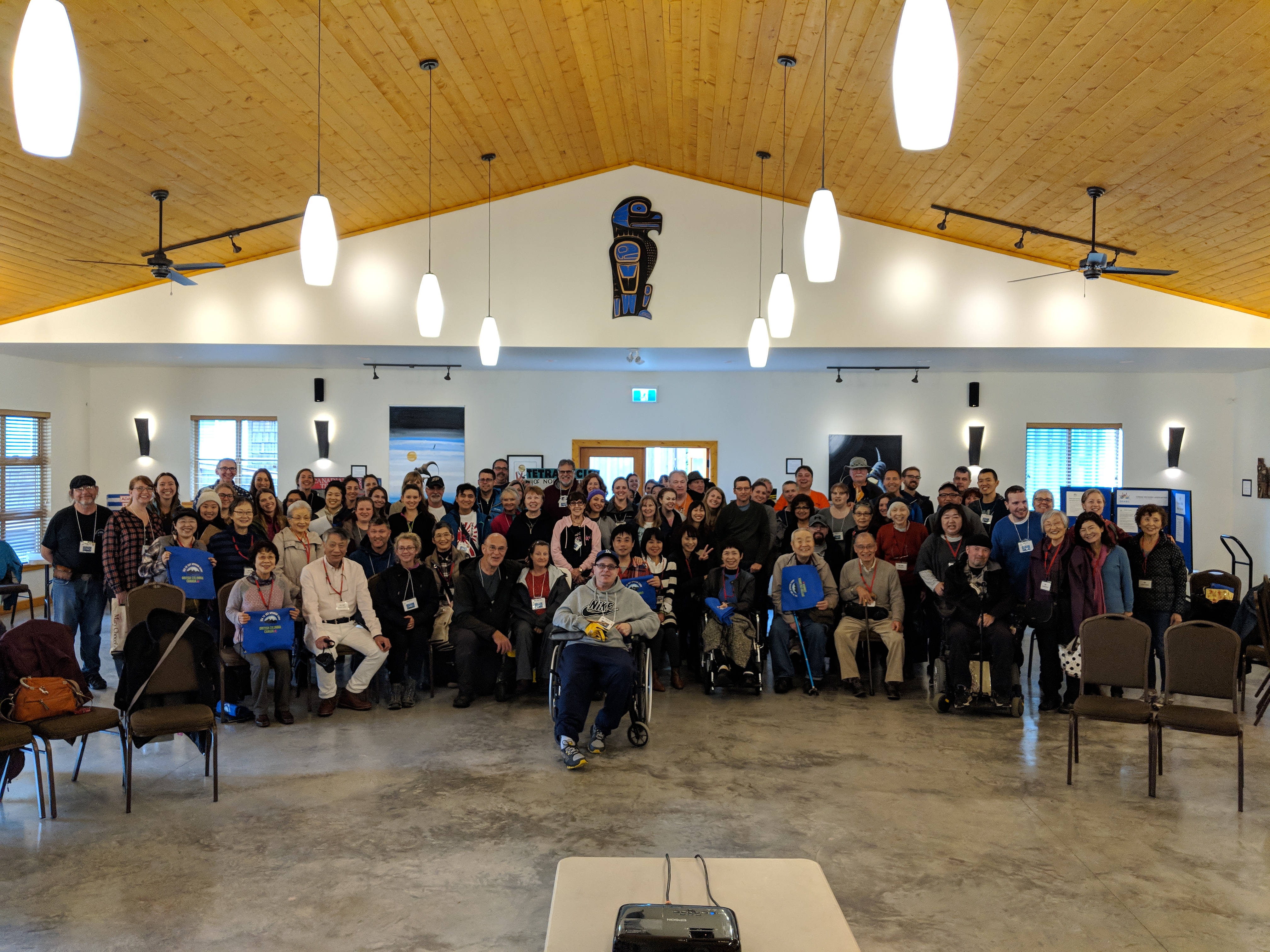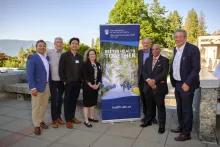
Sea to Sky Aphasia Camp integrates experiential learning with meaningful approaches to patient-centered care.
Sea to Sky Aphasia Camp, which is entering its 10th year, provides a three-day retreat to 30 campers and their family members at Zajac Ranch in Mission, B.C. This fall, it will run Sept. 20-22.
The weekend long camp offers an innovative opportunity for people with aphasia (PWA), families, students, clinicians, and community partners to connect with and learn from one another in a natural environment, creating life-changing learning moments that renew the human spirit.
Aphasia is a disorder caused by damage to the areas of the brain that control language. People with aphasia know what they want to say but cannot find the words to say it. Sometimes as a result of a stroke, it can also affect people with brain tumors, infections, head injuries or dementia. Speech-language therapy often greatly assists people in recovering from aphasia.
“It’s important to understand that, while communication is impaired, a person’s cognitive function is not,” said Eavan Sinden, a Speech-Language Pathologist at the University of British Columbia, about the condition. “This is something Sea to Sky [Aphasia] Camp focuses on – that we can create a communicatively accessible and supportive environment, while acknowledging the inherent competence.”
Designed as a UBC Health interprofessional education (IPE) community-based enrichment activity, Sea to Sky Aphasia camp is an opportunity for healthcare students to learn alongside people and their families both about the importance of interprofessional collaboration and about managing communication challenges and other effects of acquired brain injury.
“We have 36 health professional students who come for the weekend to learn a little bit more about what it’s like to live with a chronic impairment, such as aphasia. They are Speech-Language Pathology, Audiology, Therapeutic-Recreation, Nursing, Pharmacy, Dental Hygiene and Physiotherapy [and Occupational Therapy students] – a whole range of care students who opt, every year, to do this. Without them, we wouldn’t have enough support. It’s really great to have these layers of partnerships in the community. They really help create that communicably accessible environment.” (Eavan Sinden)
Sea to Sky Aphasia Camp is an exemplar of how collaborative practice models and enrichment IPE are designed to augment classroom instruction to help students better understand some of the strengths, opportunities and challenges facing communities, special or marginalized populations.
“It’s a really terrific way for people with aphasia in the community to come together, socialize and be with people who’ve been on similar journeys,” said Sinden. “Aphasia can be very isolating, so it can be incredibly powerful to meet people with whom you have a shared experience.” Angela Wagner, UBC Health Education Program Coordinator who also attended camp as a Clinical Lead says: “When students get involved in community-based IPE, they gain practical skills and also inspiration for future careers by applying classroom learning in a real world context. Camp is a real-life learning experience that enriches and complements coursework.”
UBC Health interprofessional enrichment opportunities provide safe environments to learn about other health professions, health and social issues. Students have the option to participate in a number of elective interprofessional activities around content areas that interest them as part of their learning journey year-round.
“UBC Health builds unique experiences through activities like Sea to Sky Aphasia Camp so that students can step outside their comfort zone to connect with other learners. It’s a chance to build relationships, shape perspectives and expand learning experiences for future health professionals to support and prepare team-ready graduates.” (Angela Wagner)
Student registration for Sea to Sky Aphasia camp is open on the Passport.
For more information, visit Sea to Sky Aphasia Camp and the Speech-Language Pathology Program at UBC.



